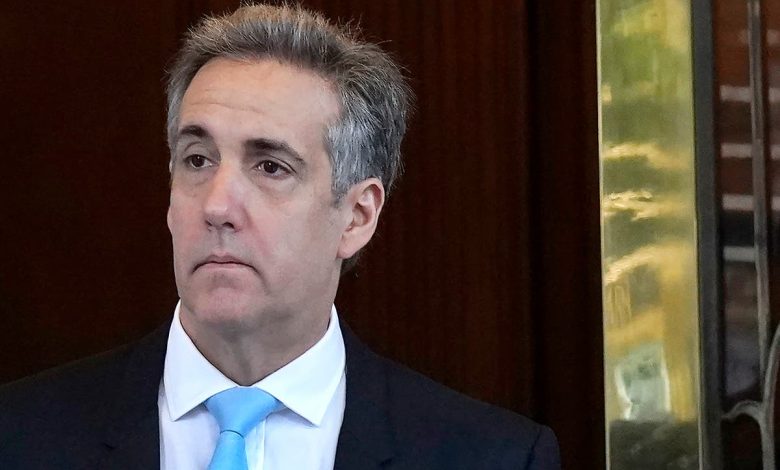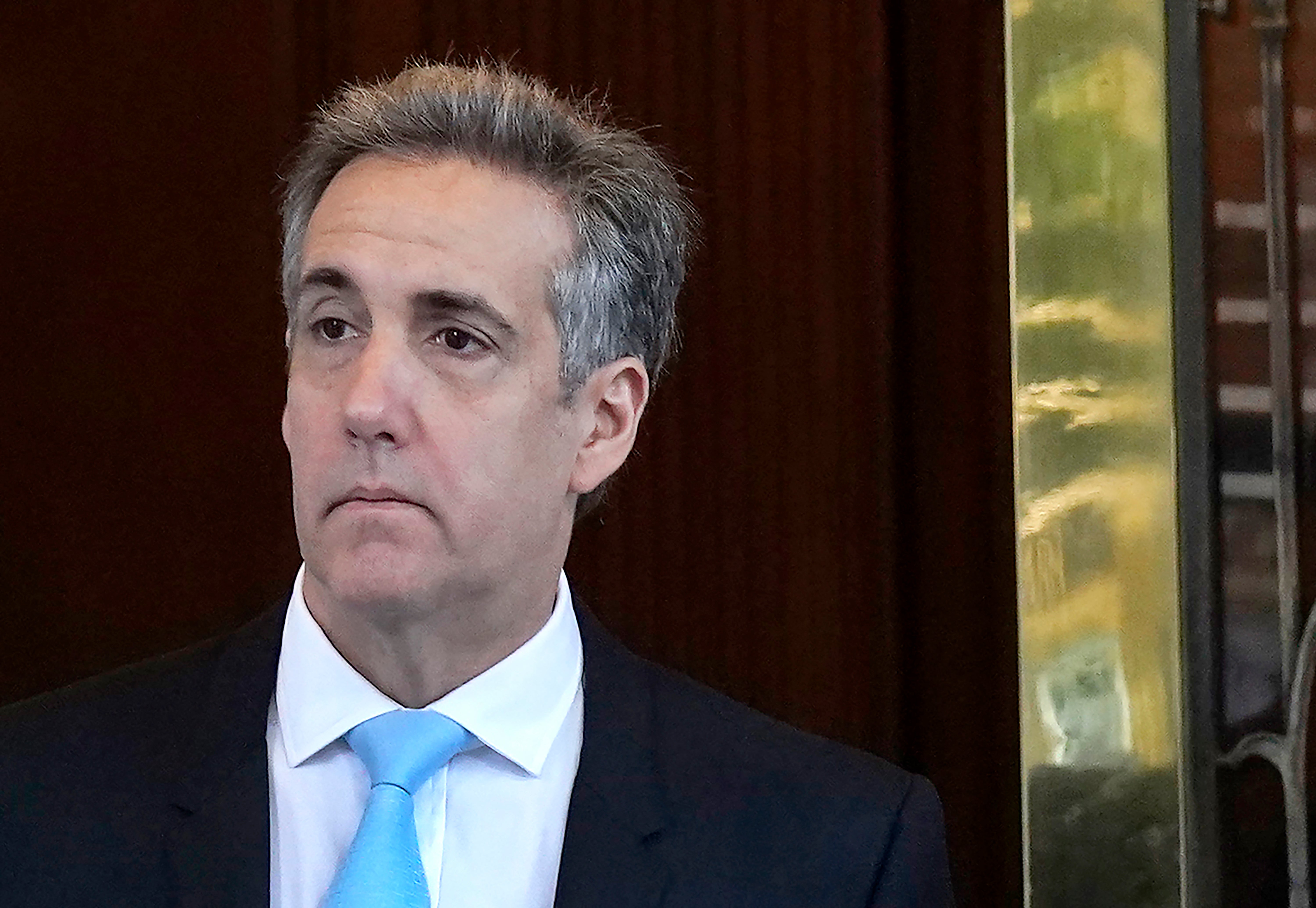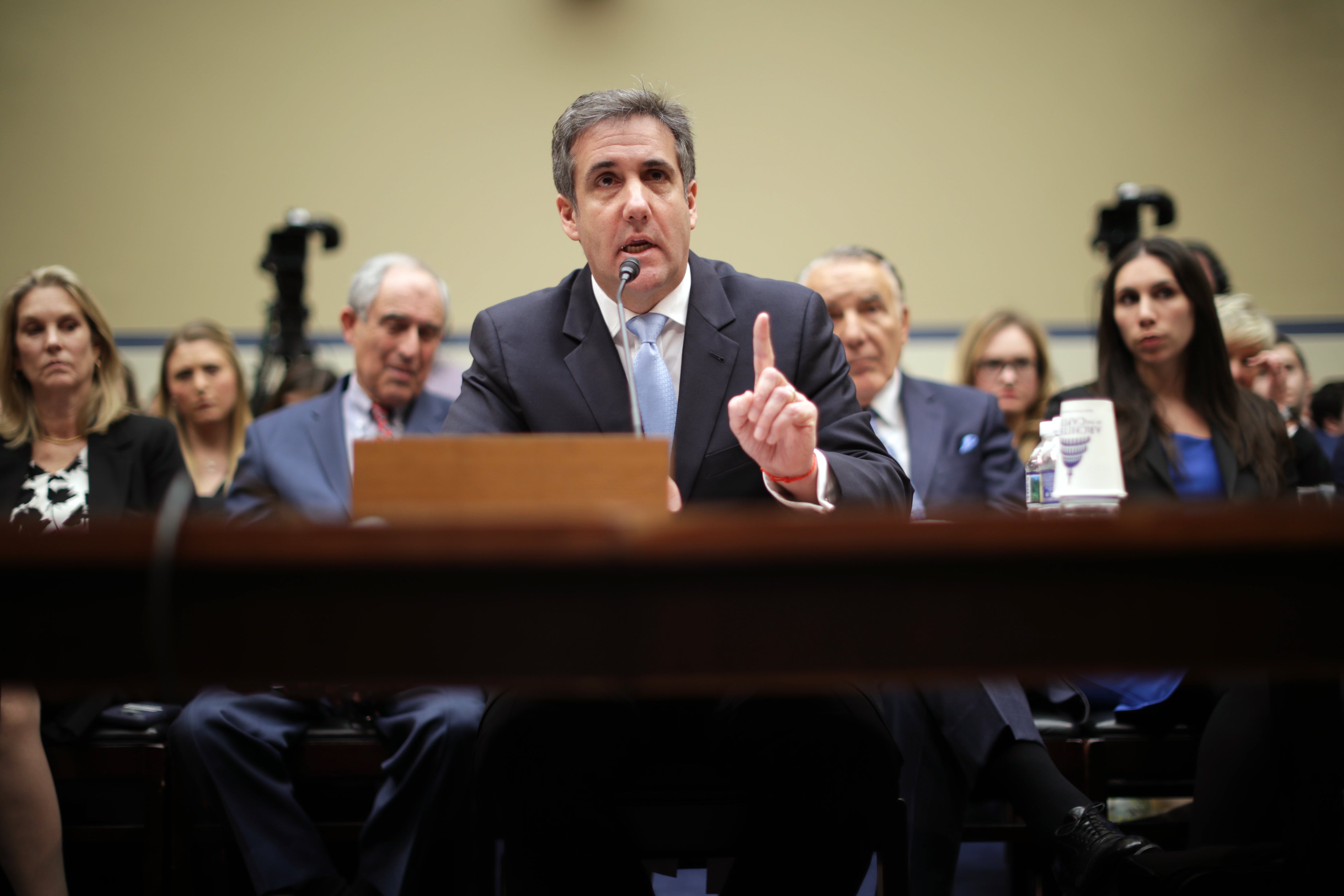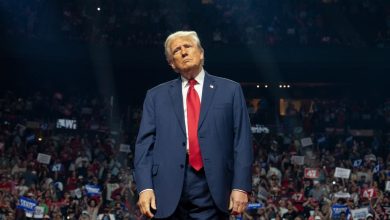Michael Cohen takes his ‘retaliation’ battle with Donald Trump to the Supreme Court

Michael Cohen is asking the Supreme Court to revive his case against Donald Trump, who is accused of violating his former attorney’s constitutional rights by keeping him in solitary confinement after revealing plans for a tell-all memoir.
A challenge that stems from a lawsuit from the one-time “fixer” — who recently testified against Trump at his New York hush money trial— asks whether a president and federal officials can be held accountable for retaliating against their critics.
“No president should ever be permitted to weaponize the Department of Justice through a willing and complicit attorney general, to have a citizen unconstitutionally remanded to prison, in my case, solitary confinement, because that person refuses to waive that First Amendment constitutional right,” Cohen told The Independent on Wednesday.
“The actions of Donald J Trump and his administration are un-American, and I believe that this case is ripe for the Supreme Court of the United States to hear,” he said.
The case comes on the heels of an earth-shattering Supreme Court decision that affirmed a president’s “absolute” immunity from criminal prosecution for “official” acts in office, radically expanding the scope of executive power.
A decision that could embolden Trump in a possible second term “has crossed my mind,” Cohen said, “though I don’t believe that anyone could justify this blatant, unconstitutional act as being one … that could be granted immunity under this presidential immunity ruling.”
A case that interrogates government retaliation provides the Supreme Court an opportunity to decide whether the US is “a democratic republic and not an autocracy led by a monarch, a dictator, a ruler, a supreme leader or a fuhrer,” Cohen said.

In January, a panel of federal appeals court judges said they would not revive Cohen’s lawsuit after it was tossed out by a lower court.
On Wednesday, Cohen filed his appeal to the nation’s highest court, arguing that the case raises major questions about constitutional abuses by the federal government against its sharpest critics.
“The questions presented in this petition are of paramount importance,” Cohen’s attorney, Jon-Michael Dougherty, wrote in a brief to the court.
“The possibility that the federal government has the power to retaliate against critics with imprisonment, without any consequence for or check against the officials engaged in such retaliation, is a chilling prospect,” Dougherty added. “This Court should not turn its eyes away from this profound breach of the contract between a government of limited powers and a free citizenry.”
The filing points to Supreme Court precedent that allows defendants to sue for damages against federal officials for constitutional violations, and that such cases should deter officials from retaliating against citizens.
Cohen was sentenced to prison in 2018 after pleading guilty to tax evasion, campaign finance charges and lying to Congress, allegedly at the direction of his former boss.
After he was released to home confinement in 2020 to prevent the spread of Covid-19, Cohen revealed his plans for a book about Trump.
Weeks later, and nearly four years ago to the date of his Supreme Court appeal, Cohen was remanded back to prison and sent to solitary confinement. Prison officials had accused him of violating restrictions on his public communications.
He was allegedly directed to sign an agreement that blocked him from any engagement with media, including in print.
Cohen and his attorneys asked whether the “bespoke” conditions of his release could be removed.
Instead, he was “shackled and transported” back to a federal prison in Otisville, New York, and kept in solitary confinement for nearly 24 hours a day — “alone in a cell with poor ventilation, no air conditioning, and a broken window,” according to his complaint.
In July 2020, after 16 days in solitary, and after a judge intervened, Cohen was released to home confinement.
The federal judge who ordered his release said his transfer back to prison was clearly “retaliatory” in response to Cohen’s plans to “exercise his First Amendment rights to publish a book critical of the President and to discuss the book on social media.”

Cohen sued Trump, his attorney general Bill Barr and prison officials, arguing that his imprisonment violated his Fourth and Eighth Amendment rights against unreasonable seizure and cruel and unusual punishment.
In 2022, District Judge Lewis Liman granted the government’s motion to dismiss, but he noted that he was disturbed by the “profound violence” his order could have on Cohen’s constitutional rights, signaling that the question should be resolved by the higher court.
“The Supreme Court’s precedents ensure that there is at best a partial remedy for the abuse of power and violation of rights against the perpetrators of those wrongs,” Judge Liman wrote.
He suggested that a “proper inquiry” should look into whether the constitution’s authors “intended for there to be such a remedy.”
“There are powerful reasons to believe that, in many circumstances, the answer to that question will be yes,” he added. “If one’s rights are violated by executive officials, the courts provide a legal remedy for that violation.”
Trump’s 2024 campaign is fueled by the idea of “retribution” for “those who have been wronged and betrayed,” and his allies and the architects of a second Trump administration have vowed to prosecute his rivals.
The former president continued to attack Cohen as a “liar” throughout his criminal trial in Manhattan, where Cohen’s damning four-day testimony walked jurors through dozens of pages of evidence, including each of the falsified business records at the center of the case.
Trump’s trial also revealed a “pressure campaign” against Cohen fromthen-President Trump’s allies to pledge his loyalty while he was under federal investigation.







